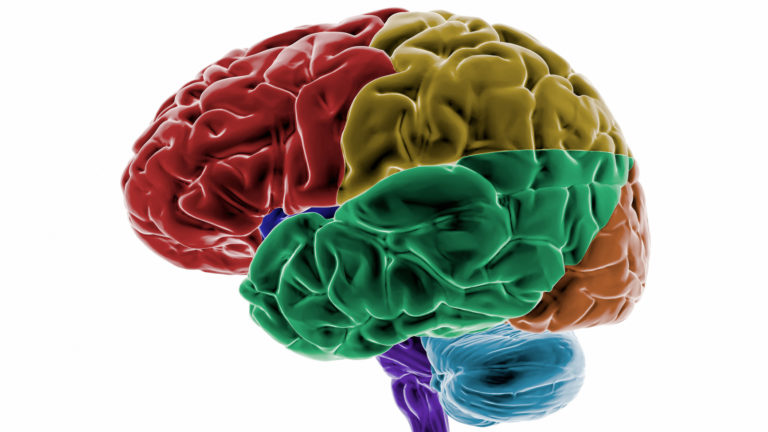Brain, behaviour and mental health
The Brain, Behaviour and Mental Health (BBMH) Research Group aims to understand the interplay between basic structures of the brain, cognitive processes, emotional functioning and behaviour.

Research outcomes advance theory and interventions for a number of conditions affecting cognition and mental health across the developmental spectrum.
Parkinson’s disease
Our work concerns assessment of the impaction of cognition on everyday function and carer experience. The work is funded by Parkinson’s Western Australia.
View researchers
Associate Professor Andrea Loftus
Associate Professor Loftus specializes in cognitive and non-invasive brain stimulation interventions for Parkinson’s Disease, as well as detailed assessment of motor symptoms. She also conducts research into the relationships between genetics, neurotropic serum, and cognitive symptoms in Parkinson’s.
Professor Gasson specializes in the development of cognition-based clinical interventions for anxiety and depression in Parkinson’s. She is also involved in research into the relationships between genetics, neurotropic serum and cognitive symptoms in Parkinson’s.
Dr Egan is interested in cognitive behavioural theory and treatment of perfectionism, eating disorders and psychological treatment of anxiety and depression in Parkinson’s disease.
Miss Corti, Research Assistant, is employed on the ParkC project, and is responsible for the neuropsychological assessment of cognitive symptoms in Parkinson’s.
Obsessive-Compulsive Disorder (OCD)
Our work has focused on the development and evaluation of the OCD? Not Me! online treatment program for young people with Obsessive-Compulsive Disorder. Funding is from the WA Department for Health and Ageing.

View researchers
Professor Rees’ main research focus is Obsessive-Compulsive Disorder (OCD) and finding new ways of improving accessibility to effective treatment. She has investigated the use of internet and videoconferencing to provide treatment for OCD.
Dr Anderson is interested in stepped care approaches to treatment utilising internet based Cognitive Behavioural Therapy and the group treatment of Obsessive-Compulsive Disorder.
Dr Finlay-Jones is interested in how treatment delivered via the internet can be made more effective and engaging. She has worked as the coordinator of the OCD Not Me program for young people with OCD.
Cognition, emotion and motor control
Our work focuses on the facial recognition of emotion, and the impact of acoustic stimulation on the brain. Our research is funded by the Australia Research Council (ARC).
View researchers
Professor Lipp’s research, both basic and applied, is concerned with emotion, attention and their interaction as evident in the acquisition and retention of likes and dislikes and the manner in which emotionally salient events are processed.
Cognitive behaviour therapy
Our work concerns the effect of imagery on CBT outcomes for social anxiety disorder. Our research is funded by the NHMRC.

View researchers
Professor McEvoy is a Professor of Clinical Psychology in the School of Psychology and Speech Pathology. He has extensive clinical experience providing evidence-supported group and individual treatments for emotional disorders. His research interests are broad and include anxiety disorders, social anxiety disorder, transdiagnostic approaches to conceptualising and treating emotional disorders, the use of imagery in psychotherapy, repetitive negative thinking, mechanisms of behavioural and cognitive change, and the epidemiology of mental disorders. He is currently leading an NHMRC-funded randomised controlled trial comparing two group-based psychological treatments for social anxiety disorder.
Associate Professor Penelope Hasking
Associate Professor Hasking’s work focuses on the socio-cognitive factors underlying the initiation, maintenance, and cessation of non-suicidal self-injury in adolescents and young adults.
Dr Boyes is interested in risk and protective factors associated with psychosocial outcomes in potentially vulnerable populations. Current research projects are investigating child and adolescent mental health in the context of HIV/AIDS and reading/language difficulties, as well as the roles of emotion and emotion regulation in understanding non-suicidal self-injury.
Global Mental Health Group
Our aim is to address the mental health gap for at-risk populations in Australia and internationally. Our portfolio of research seeks to examine cross-cultural perspectives of mental health, highlight the social determinants of health, build capacity and improve intervention delivery across a diverse range of populations. We receive NHMRC funding and funding from the Hong Kong Jockey Club Charities Trust.
View researchers
Dr Newnham’s research investigates the mental health and security risks associated with war, disaster, displacement and adversity, with a specific focus on children and adolescents. She currently leads studies examining adolescent resilience in China and Nepal, disaster preparedness in Hong Kong and refugee resettlement in Australia.
Dr Boyes’ research investigates risk and resilience-promoting factors associated with psychosocial and health-related outcomes for vulnerable youth. The overarching aim is to use the knowledge generated to develop and evaluate evidence-based interventions for youth and their families. Current research is investigating the impact of HIV/AIDS on South African youth, mental health children with reading and language difficulties, and associations between mental health and self-care in the context of Type 1 Diabetes. Mark is also collaborating with Penny Hasking on the WHO World Mental Health Surveys – International College Student Project.
Dr Hamamura investigates people’s ways of thinking, emotions, and behaviours from a cultural perspective. These issues are examined through cross-cultural comparisons and through cross-temporal comparisons to discern changes within a culture over time.
Associate Professor Penelope Hasking
Associate Professor Hasking’s work focuses on mental health in adolescents and young adults. She is leading the Australian arm of the WHO World Mental Health Surveys – International College Student Project, which seeks to collect cross-national data on mental health of university students, identifying unmet needs and linking students with appropriate mental health services. Her primary interests are in the social and cognitive factors that initiate and maintain non-suicidal self-injury in youth. As the Chair of the International Consortium on Self-Injury in Educational Contexts, she has led an international position paper on how best to address NSSI in secondary schools, and co-authored an international approach to responding to NSSI on university campuses.